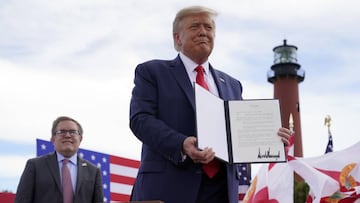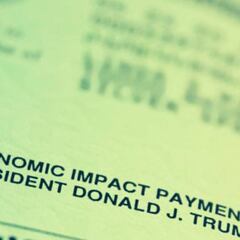The most controversial Donald Trump revelations in Bob Woodward’s new book
Bob Woodward's new book 'Rage' contains various controversial relevations about US president Donald Trump, including his relationship with Kim Jong-un.

With revelations that could potentially influence public opinion of president Donald Trump ahead of November’s election, Bob Woodward's new book 'Rage' contains various controversial relevations about the US President.
Excerpts from the book have emerged ahead of its publication on September 15, offering fascinating details from 18 interviews that Woodward conducted with Trump. Among the revelations to emerge include a startling admission from the President about his handling of the coronavirus pandemic and his thoughts on race relations.
1. Trump knowingly downplayed the threat posed by Covid-19
Trump’s admission that he willingly tried to minimize the danger posed by the then-rapidly spreading coronavirus disease that has since gone on to kill nearly 200,000 Americans.
“I wanted to always play it down,” Trump told Woodward on March 19, just weeks after he told reporters that the Covid-19 was eventually “going to disappear... like a miracle.”
Woodward’s book makes apparent the fact that he was fully briefed and made aware of the threat presented by the highly infectious disease. During a top secret intelligence briefing in January, national security adviser Robert C. O’Brien told Trump that Covid-19 would “be the biggest national security threat you face in your presidency.”
The US president acknowledged as much to Woodward on February 7, labelling the virus as “more deadly than even your strenuous flu” even while he publicly declared Covid-19 as no more harmful than the seasonal flu. “This is deadly stuff,” he told Woodward. However, despite recognizing the danger of a potentially lethal virus that “goes through the air,” Trump continued to evade calls for him to promote the use of face masks, and also continued to hold campaign rallies into early March.
2. Trump's failure to acknowledge white privilege and the plight of Black Americans
Woodward tries to relate to Trump, as a fellow 70-something white man who grew up in comfort, that they have to work to understand the perspective of Black people who have less privilege.
Woodward tries to present it in the most sympathetic way possible: “Do you have any sense that that privilege has isolated and put you in a cave to a certain extent, as it put me, and I think lots of white, privileged people in a cave. And that we have to work our way out of it to understand the anger and the pain, particularly Black people feel in this country. Do you feel —”
Trump dismisses the idea out of hand: “No. You really drank the Kool-Aid, didn’t you? Just listen to you. Wow. No, I don’t feel that at all.”
Trump proceeds to complain that, despite having allegedly done more for Black America than any president since Lincoln, they remain ungrateful: “I’ve done a tremendous amount for the Black community. And, honestly, I’m not feeling any love."
3. Trump and Kim Jong-un have exchanged more than two dozen letters
Woodward reports about the President’s relationship with the North Korean dictator, whom he once derided as “little rocket man.” But the pair have since patched things up as evidenced by the 27 letters they have exchanged over the course of Trump’s presidency.
Woodward reports that the letters are filled with flattering language between the two leaders, with Kim repeatedly calling Trump “Your Excellency” and describing him as a “a powerful and preeminent statesman.” Kim also wrote of the pair’s historic meetings as a “precious memory” that established a “deep and special friendship between us.”
The flattery apparently worked, as Trump boasted to Woodward of Kim’s deference to him and described the North Korean dictator as “far beyond smart.”
4. Alice in Wonderland is the key to understanding the Trump presidency, according to son-in-law Jared Kushner
Kushner is one of the most influential figures inside Trump's administration. Woodward quotes Kushner in the book, revealing that Alice in Wonderland - Lewis Carroll’s classic 19th century fantasy novel, turned 1951 Disney movie, as an important text in understanding Trump and his presidency.
Related stories
Kushner paraphrased the Cheshire Cat as an apt guide to grasping the disorganised style of the administration: “If you don’t know where you’re going, any path with get you there.”
5. “I have built a nuclear — a weapons system that nobody’s ever had in this country before.”
Trump tries to impress Woodward by referring to a still-secret technology. “I have built a nuclear — a weapons system that nobody’s ever had in this country before”. Woodward claims that other sources “confirmed the information, without providing further details, but expressed surprise that Trump disclosed it.”

